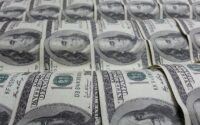Biden argues his economy is beating the rest of the world. Is it?
On Wednesday afternoon, President Biden will make his case for “Bidenomics.” A key piece of Biden’s argument is that his policies fueled an economic recovery that outperformed the rest of the world.
The White House points to GDP growth and inflation as evidence for that claim. The US has “the highest economic growth since the pandemic and currently has the lowest level of inflation,” senior advisors Anita Dunn and Mike Donilon noted in a memo this week.
That good news, they added, is “a direct result of Bidenomics.”
Those carefully chosen words do obscure some slightly less flattering numbers on inflation and a jobs record that equals but doesn’t exceed that of fellow nations. And voters continue to rate him poorly on his handling of the economy.
But a Yahoo Finance review of the data found that perhaps Biden is entitled to some bragging. He is overseeing an economy that is notably outperforming or at least on par with comparable economies around the world on a variety of fronts, and he has dodged a recession so far.
The mixed but positive picture can be attributed (at least in part) to Biden’s own policies and a lesson he took from his time as vice president.
Many on the left have long argued that Washington’s response to the 2007-2008 financial crisis was too small and set the stage for a painfully slow recovery.
Economist David Wilcox notes that Biden and his team had that in mind as they crafted their strategy in 2021. They successfully pushed a series of bills through Congress that sent trillions of dollars to consumers and businesses and have directly impacted the country’s economic trajectory.
“My view is the administration was not wrong to err on the side of going too big rather than too small,” said Wilcox.
The senior economist at the Peterson Institute for International Economics and Bloomberg Economics added that Biden deserves some credit for the solid labor market and strong GDP growth, but “he gets a little blame for inflation initially having been worse here than on average in peer advanced economies.”
Here’s the data behind some of what Biden will tout on Wednesday and some other numbers he may be less inclined to highlight. He is set to speak at 1:00 p.m. ET in Chicago.
A mixed picture on inflation
Lingering inflation is proving to be an especially strong drag on Biden’s political prospects as he struggles with low approval ratings on his handling of the economy.
The White House’s message on that front is to look at the current inflation rate and compare it with the rest of the world.
Over the last year, Americans have seen a 4.9% rise in consumer prices. It’s a level that remains significantly above the Federal Reserve’s 2% target but is indeed outperforming the rate in Europe and elsewhere.
The Organization for Economic Co-operation and Development tracks a wide array of countries and pegs the current worldwide Consumer Price Index at 7.3%.
But even data promoted by the White House itself shows both sides of the situation. In recent talking points distributed to allies, Biden administration officials charted how core inflation — which doesn’t take food and energy into account — has dropped in the US below that of several peer economies.
But their graphic also showed clearly that the US was a notable laggard on that same measure throughout 2021.
Clearer results on GDP growth
The case is somewhat more clear-cut when it comes to GDP growth.
Since the pandemic hit, the US economy has grown 5.4%, while growth in the rest of the G7 is only 1.3%, according to Haver Analytics.
US performance here has been a trend since the beginning of the pandemic — including during the final months of then-President Trump’s time in office.
The recent World Economic Outlook from the IMF underscored the continued rocky outlook for the global economy on both the inflation and GDP fronts. It projects global growth will be 2.8% for 2023, then rise to 3% next year.
Unemployment
A key Biden stat you can expect to hear a lot between now and election day 2024 is that 13 million jobs have been created since Biden took office. But the trends in the US labor market are broadly similar to those around the rest of the globe.
The US unemployment rate is hovering at the same level as pre-pandemic lows—with other countries also returning to their 2019 levels.
Countries like Japan and Germany have lower unemployment rates today, but they also had lower rates before the pandemic. Likewise, countries like Italy had higher unemployment rates before the pandemic, and that remains true today.
The US labor market remains strong even despite an aggressive campaign of interest rate hikes at the Federal Reserve that has yet to be felt in the unemployment rate.
A recent report from the Treasury Department argued that Biden’s policies are at least partly to thank for that upside surprise, saying “the actions taken by the Biden administration meaningfully contributed to the pace of recovery and strength of the labor market.”
The report also pointed to some of the limits of these international comparisons by documenting how other economies faced different economic challenges. Europe, for example, had much more direct exposure to the effects of the war in Ukraine in the energy sector and elsewhere.
The bottom line, Wilcox noted, is that Biden has overseen a US economy that has outperformed the world on significant measures, and on inflation, “We’ve really turned the corner a little faster than most other countries.”
He said he didn’t foresee the rapid growth. “If you had asked me two years ago in the middle of 2021 would we be in this kind of shape, I wouldn’t have given very high odds on that [and] I think an awful lot of pessimists have been proven wrong.”
Ben Werschkul is a Washington correspondent for Yahoo Finance.
Click here for politics news related to business and money
Read the latest financial and business news from Yahoo Finance
[ad_2]
Source link


